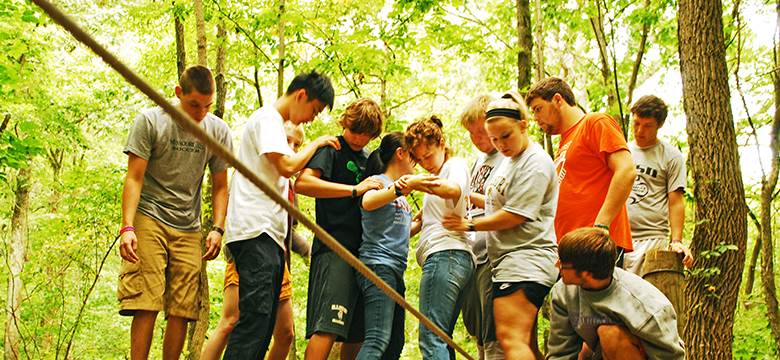 "I tried to teach my child with books.
"I tried to teach my child with books.
She only gave me puzzled looks.
I tried to teach my child with words.
The passed over her quite unheard.
Despairingly I turned aside.
"How can I teach this child," I cried?
Into my hand she put the key:
"Come she said, "and play with me."
—Author Unknown
I recently saw an amazing pinewood derby car crafted by a Cub Scout and his father. Behind me, I heard another parent say, "There's a dad with too much free time on his hands." Later I reflected on the notion that time working with one's son to create a toy racing car would be considered wasted "free time."
As adults, we have a tendency to look at "play" as wasted time. However, play is the basis for learning and development. Studies show that infants and toddlers who are not given opportunities to play do not develop at normal rates, and hand-eye development is directly connected to cognitive learning. In other words, God has wired our minds to learn through play.
The concept of "Purposeful Play" seeks to create intentional, fun experiences that translate into applicable learning. One afternoon on Eagle Crest Adventure's low ropes course, I had a group of adults standing on a log attempting to line up in a certain order without anyone stepping onto the ground. There was a lot of laughter, joking, and even frustration. Early in the activity, one of the men in the group—who was not enjoying himself—asked me, "What exactly is the point of doing this stuff?" I responded, "Ask me that question again in one hour." An hour later, I said to the man, "You had a question for me." He smiled and said, "No, I get it now."
What he "got" was that in that hour of play the group had to confront communication barriers, the ability to respect and disagree, and overall trust within the group. For this group, the application that came forth was that "loving your neighbor as yourself" means practicing respect even when the frustration level increases.
Does your group have purposeful social interaction? Or are they all business? Purposeful play does not have to be silly games or organized team building. It can be a group volunteering in the community. It can be sharing a meal—one of the oldest and most reverent custom in many cultures. It can be going on retreat together or any activity that the group chooses to do.
However, you define "play," do it! You'll find your group is more cohesive and better functioning because you did.